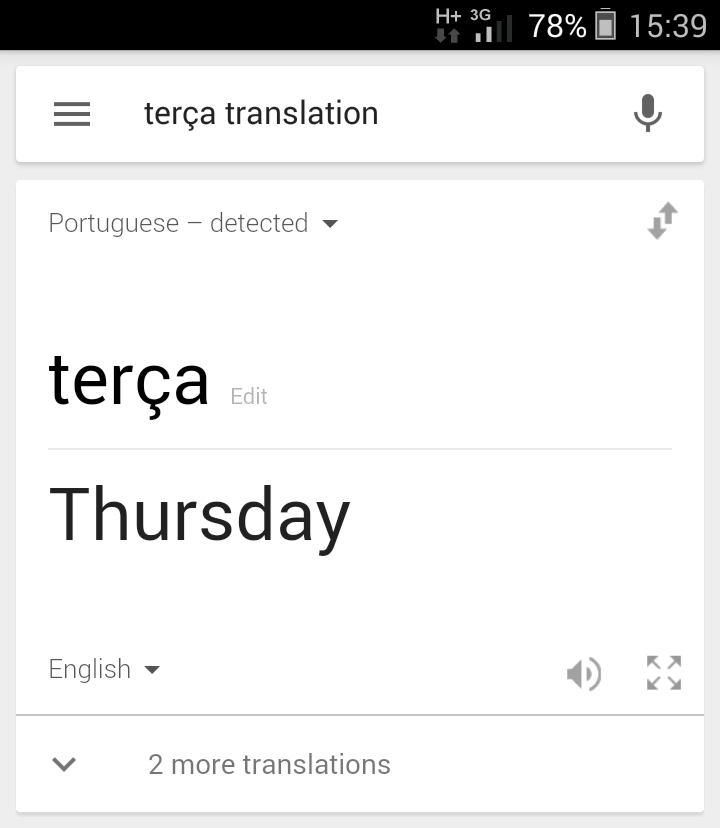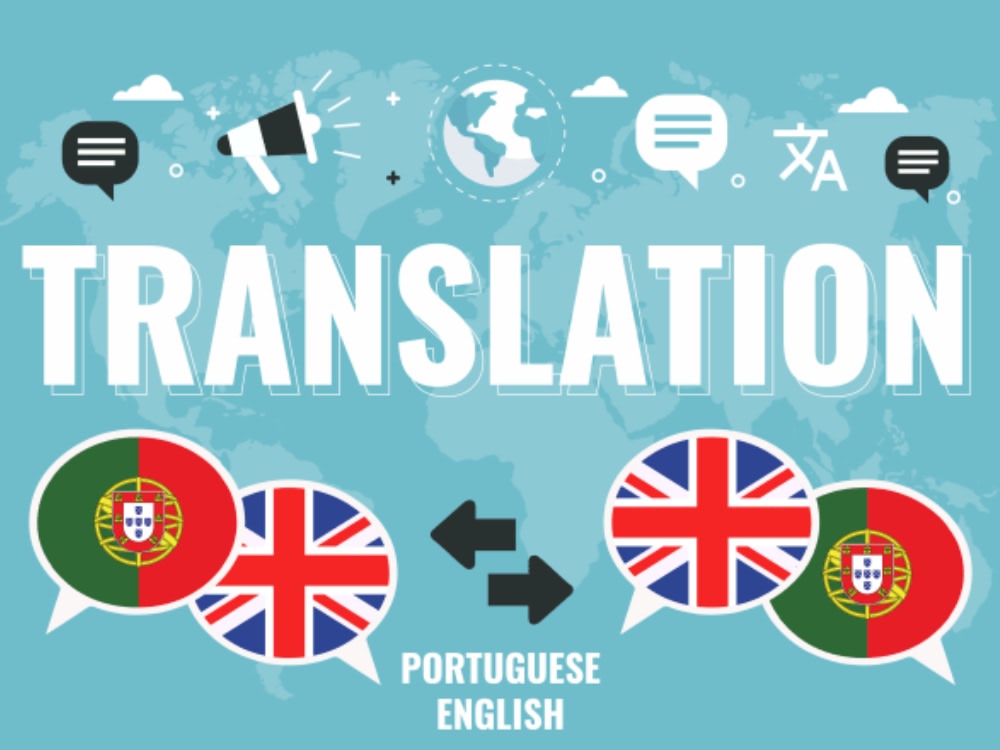Leading Tips for Perfect English to Portuguese Translation Provider
Accomplishing phenomenal English to Portuguese translation needs greater than plain word-for-word conversion; it demands an understanding of linguistic complexities and social subtleties. Selecting qualified translators who are both culturally aware and proficient is vital. Just as important is the practice of localization, which involves tailoring material to regional variations. In addition, using contextual referrals makes certain that the initial tone and meaning are preserved. The trip does not finish there; a strenuous testimonial and editing and enhancing procedure is essential. What various other essential variables should be considered to elevate translation high quality even more?
Understand Cultural Nuances
When equating from English to Portuguese, understanding the cultural subtleties is crucial for producing a powerful and exact text. The Portuguese-speaking globe varies, including various areas, each with its unique customizeds, expressions, and social norms. A translator must be in harmony with these nuances to ensure that the translation not just conveys the designated message but likewise reverberates with the target audience.
For example, idiomatic expressions in English might not have direct counterparts in Portuguese. An expression that functions well in one culture can result in complication or misconception in another. Understanding local dialects and variants, such as those found in Brazil and Portugal, is essential; words might hold different connotations or uses depending on the area.
Furthermore, social context plays a significant function in translation. Ultimately, a detailed understanding of social subtleties is essential for delivering translations that are not just linguistically accurate but also culturally pertinent and engaging.
Choose Qualified Translators
Selecting certified translators is a vital action in guaranteeing the accuracy and quality of English to Portuguese translations. A translator's know-how not just includes language proficiency but also a deep understanding of social context, colloquial expressions, and industry-specific terms. When selecting a translator, focus on those with official training in translation researches or grammars, in addition to appropriate accreditations that demonstrate their expert skills.
Experience plays a critical role as well; translators concentrating on details fields-- such as lawful, clinical, or technical-- are more probable to provide accurate translations tailored to the sector's requirements (English To Portuguese Translation). Additionally, consider their portfolio and customer endorsements to examine their previous work top quality and integrity
Engage translators who are indigenous Portuguese speakers, as they have an inherent understanding of the language's nuances and local dialects. This knowledge enhances the translation's credibility and efficiency.
Use Contextual Recommendations

When equating, it is necessary to acknowledge colloquial expressions and cultural recommendations that might not have direct equivalents in Portuguese. Particular expressions that reverberate in English might need adjustment to share the same emotional weight or cultural value in Portuguese. Employing contextual recommendations can aid translators choose the ideal terms and style, therefore enhancing the general clearness and influence of the translation.

Concentrate On Localization
Localization plays an essential role in the translation procedure from English to Portuguese, as it ensures that the translated material is culturally proper and appropriate to the target audience. English To Portuguese Translation. This procedure exceeds mere translation; it navigate here involves adjusting the material to the cultural, social, and linguistic nuances particular to Portuguese-speaking regions
Understanding neighborhood expressions, custom-mades, and preferences is crucial. Certain expressions or referrals that reverberate with an English-speaking audience might not have the exact same impact on Portuguese audio speakers. It is necessary to consider local variations, such as Brazilian Portuguese versus European Portuguese, as each has distinct vocabulary and stylistic distinctions.
Additionally, find more information localization incorporates format, such as date and time styles, money, and dimension units, which can vary significantly throughout societies. This focus to information promotes a link with the audience, improving engagement and comprehension.
In addition, employing regional languages and slang can supply authenticity, making the material extra relatable. By focusing on localization in English to Portuguese translation, services can properly communicate their message, develop trust with their audience, and inevitably attain their intended goals.
Evaluation and Edit Extensively
Comprehensive review and editing are important actions in the translation procedure, particularly when transforming English web content into Portuguese. This phase makes sure that the converted product not just retains the original significance however additionally reverberates well with the target market. Offered the social and linguistic subtleties, a precise approach to evaluate and editing and enhancing is essential.
Begin by comparing the original English text with the Portuguese translation, paying very close attention to terminology, context, and tone. It's essential to guarantee that idiomatic expressions and cultural references are suitably adjusted for the Portuguese audience. Engaging a second translator or an indigenous audio speaker for this evaluation procedure can supply very useful understandings and capture mistakes that may have been forgotten.
In addition, look for grammatical accuracy and stylistic uniformity throughout the document. Common challenges such as incorrect cognates or unclear phrases ought to be addressed to stay clear of false impression.
Verdict
Accomplishing outstanding English to Portuguese translation services necessitates a comprehensive strategy that includes understanding cultural subtleties, selecting certified translators, utilizing contextual references, focusing on localization, and carrying out comprehensive testimonials and edits. Each aspect plays a vital duty Full Report in making certain that translations are not only exact however additionally resonate with the target market. By carrying out these techniques, companies can improve the performance of their communication and cultivate a deeper link with Portuguese-speaking audiences.
Attaining outstanding English to Portuguese translation requires more than plain word-for-word conversion; it demands an understanding of linguistic intricacies and cultural subtleties.Selecting qualified translators is a crucial action in guaranteeing the precision and top quality of English to Portuguese translations.Comprehensive testimonial and editing are crucial steps in the translation process, specifically when converting English material right into Portuguese.Begin by contrasting the original English message with the Portuguese translation, paying close attention to context, terms, and tone.Attaining outstanding English to Portuguese translation solutions necessitates a detailed technique that incorporates understanding cultural nuances, choosing certified translators, making use of contextual referrals, prioritizing localization, and conducting extensive evaluations and edits.